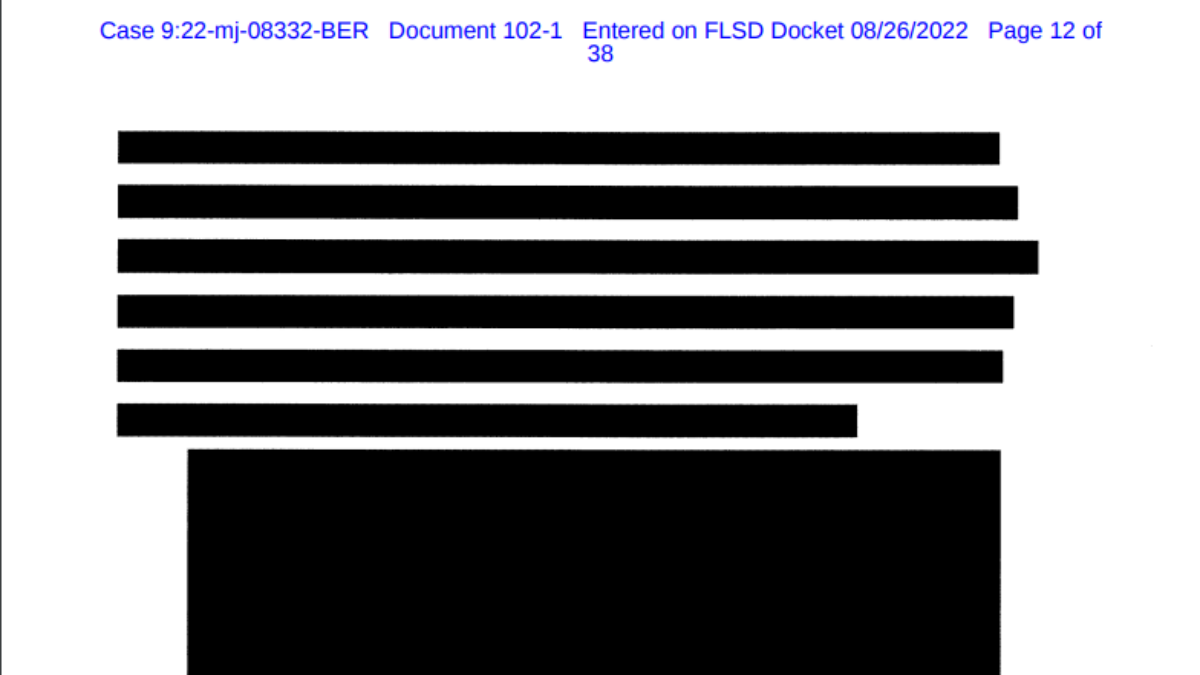
On Friday, the Department of Justice (DOJ) released the affidavit supporting the FBI’s warrant application to raid former President Donald Trump’s Florida residence.
Nearly the entire 38-page affidavit released was redacted, with few lines offering insight into the FBI’s unprecedented raid of a former president. The document outlining the justifications to redact the redactions was itself also nearly entirely redacted.
The few sentences made public in the affidavit, however, show the FBI was motivated to comb through Trump’s 128-room living quarters because of a CBS News article that a truck was present at Mar-a-Lago in the final days of his presidency.
“Boxes Containing Documents Were Transported from the White House to Mar-a-Lago,” read a subject head. “According to a CBS Miami article titled ‘Moving Trucks Spotted At Mar-a-Lago,’ published Monday, January 18, 2021, at least two moving trucks were observed at the PREMISES on January 18, 2021.”
The affidavit also showcased the raid as a dramatic escalation of federal law enforcement targeting political opponents driven by a disgruntled employee at the National Archives.
The search, ultimately culminating in the confiscation of 15 boxes from Mar-a-Lago, was demanded by the National Archives and Records Administration (NARA) to reclaim presidential documents under government possession.
The NARA referral stated that according to NARA’s White House Liason Division Director, a preliminary review of the FIFTEEN BOXES indicated that they contained ‘newspapers, magazines, printed news articles, photos, miscellaneous print-outs, notes, presidential correspondence, personal and post-presidential records, and ‘a lot of classified records.’
Following criticism of the raid earlier this month, Attorney General Merrick Garland held a press conference where the nation’s chief law enforcement official admitted to personally signing off on the raid of the president whose inauguration nullified Garland’s Supreme Court nomination in 2017.
“First, I personally approved the decision to seek a search warrant in this matter,” Garland said, adding that the warrant was “narrowly scope[d].”
“The department does not take such a decision lightly. Where possible, it is standard practice to seek less intrusive means as an alternative to a search, and to narrowly scope any search that is undertaken,” Garland added.
Examination of the search warrant, however, shows the roughly 30 plainclothes agents were granted authority to seize any and all documents Trump came in contact with as president.









